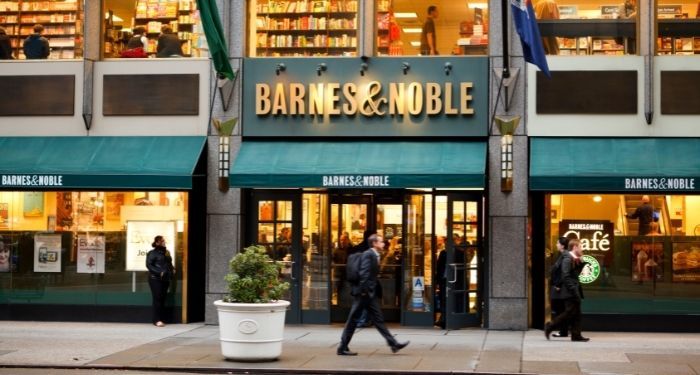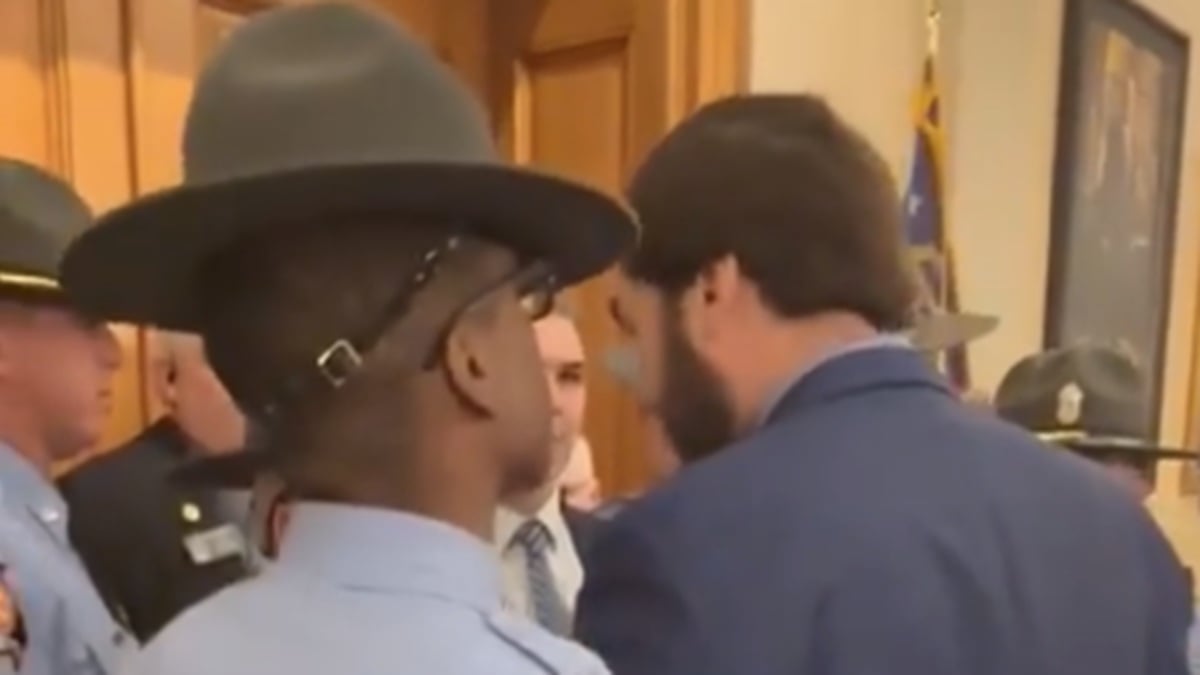Anne Hill has spent the last two years investigating the suspicious 2020 election and documenting voter fraud.
She has found clear-cut cases of voter fraud in Michigan near her home, that the County Clerk and the Secretary of State refuses to take action on.

Investigator Anne Hill
Some of the most obvious examples are illegal votes being cast from locations that no longer exist.
At Michigan State University, in East Lansing Michigan, there were a series of apartments known as “Cherry Lane Apartments.” These apartments, built in the 50’s, were on a street named Cherry Lane. This location is a little over three miles east of the Michigan State Capitol.
Between 2005-2010 the apartments were torn down, and the street itself was made into a park as reported by the Lansing State Journal. Another news report claims all structures were being torn down as of July 2011.
But votes in 2020 and 2022 are still coming from the Cherry Lane apartments from people registered at that nonexistent address, from a street that no longer exists.

The old Cherry Lane, visible on the left, ran north-south. It was torn down over 10 years ago and converted into a park. No one actually lives there, but that fake address keeps generating votes.
Under Michigan law, a voter’s residence must be the location they actually reside at more than half of the year. Voters must be residents of the state. Voters are not supposed to be automatically registered. The Michigan Secretary of State is supposed to use databases to help determine who has moved out of state. Under Michigan law, a voter who is absent from their home must have a functioning mailing address for the postmaster to forward their ballots. Instead, ballots are being mailed directly to addresses selected by the voter.
There were 47 remaining voter registrations left at Cherry Lane for the 2022 election, of which 8 cast absentee ballots. There were 50 registrations in the 2020 election, and 15 absentee ballots coming from the non-existent Cherry Lane. At least 9 absentee ballots were cast in the 2016 general election from this non-existent street.
Of the 47, all but two registered to vote after the 2005-2010 tear down of the apartments, meaning that most of the registrations were not accurate residential addresses at the time they registered. A 99 year old woman, born in 1923, was registered at this address, a former college dorm, in 2012 when she was 89 years old and 7 years after the apartments were torn down.
The average age of these people casting ballots from a former college address is 62, considerably older than the average age of Michigan State students.
Interestingly many of the Cherry Lane ballots are being sent abroad, including ballots sent to Madrid in Spain, France, Canada, and Brazil. These could be U.S. citizens living abroad, or they could be voters living beyond the jurisdiction of U.S. prosecutors able to indict anyone for voter fraud. So far, email from TGP to the voters in question have gone unanswered.
The ballot being sent to France is addressed to Richard Ruble, who appears to have been a European professor since at least 2008. Ruble registered to vote at Cherry Lane in 2012 and voted absentee in the 2016 primary and general election and the 2020 general election.
One of the ballots being sent to Canada is addressed to Inez McCreery who appears to be a Canadian substitute teacher and have owned a Canadian garlic farm since at least 2014.
The Michigan clerks and Secretary of State will permanently mail these foreign addresses live U.S. ballots until the voters tell them to stop, on the assumption they were valid voters when they registered.

The former Cherry Lane apartments, torn down from 2005-2010, where its residents are still casting live ballots in Michigan elections.
For context across the state, If Cherry Lane were all the fraud in just one precinct, considering that Michigan has 4,755 precincts, it would represent a level of voter fraud with 223,485 wrong or suspicious address registrations and over 38,000 potentially fraudulent absentee ballots. Trump won Michigan by 10,000 votes in 2016, and lost Michigan by 154,000 votes in the highly disputed 2020 election.
But of course this is just an egregious example of the fraud on the voter file because here the physical location was torn down and turned into a park 12-17 years ago.
Anne Hill is a former candidate herself, but she is currently retired and working to document and investigate election integrity. She explained her research and its importance in an interview with the GATEWAY PUNDIT, above.
Hill presented her findings this past May and published her report into voter fraud in East Lansing in May 2022, titled “Lights Out.” She was promptly removed from a local non-profit afterwards as punishment for investigating voter fraud.

Clerk Byrum’s argument is that older people might have gone to Michigan State, elderly women might have lived in fraternities, and these all might be people who list their ‘last known address’ under the federal law known as UOCAVA. UOCAVA, or the Uniformed and Overseas Citizens Absentee Voting Act, allows deployed military and citizens abroad to use the ‘last known address’ in the U.S. as their legal voting address. In 2012, Michigan Republicans expanded the ability of these abroad voters, voting by email, to vote in even local elections as part of House Bill 5297.
Even when voter fraud is discovered, clerks are ready to dismiss it away.
So because there’s a chance that these ballots might be legal, Clerk Byrum debunks all of Hill’s research and permits the voter registration of people whose residences are impossible. In law there is a principle of statutory construction where if a conflict between two laws lead to an irrational result, such as permitting people to claim a residence that no longer physically exists, the law is invalid to the extent that the interpretation would cause the irrational result. This is known as the “Absurdity Doctrine.”
A Michigan State professor and former East Lansing clerk, Marie Hicks, wrote a response to Hill with 16 pages of relative nonsense, for instance claiming that dead people voting wasn’t a concern, and that absentees being sent to undeliverable addresses weren’t proof of anything.
Byrum and Hicks both repeat the same error: that a voter’s registration is permanently correct until proven otherwise. They also both complain that unless a voter takes the steps to change their registration, or shows up in one of the selective databases used by the clerks, then it is to remain on the rolls even if the ballots being cast are plainly and obviously ballots from ineligible electors and highly suggestive of voter fraud.
Since the 2020 election people like Anne Hill have dutifully investigated allegations of voter fraud because establishment Republicans and Democrats are united behind a wide variety of tactics to undermine those efforts. They prefer to ignore it until they can’t, and then use various bullying tactics such as those exhibited by Clerk Byrum to manufacture a consensus that voter fraud is impossible and, even if found, somehow legal through twisted legal interpretations.
The only alleged investigation finished in May 2021 when the Michigan Senate released a report into 2020 voter fraud where the Republican author, Sen. Ed McBroom, not only said there was no fraud and that any amount detected was minor and insignificant, but then explosively encouraged the extreme-left Democrat Attorney General Dana Nessel to prosecute people investigating voter fraud as fraudsters. The establishment Republicans responded to evidence of voter fraud by demanding Democrats prosecute and persecute those investigating voter fraud.
Staffers who wrote the McBroom report privately told the Gateway Pundit that the Republicans decided early on that any widespread vote fraud scheme was simply ‘too complicated’ and thus there was no way the Democrats perpetrated it. From that assumption they proceeded to debunk all evidence that came forward and structured interviews from witnesses not to prove a case, but instead engaged only so far as to poke holes and disprove the main voter fraud claims.
Meaning there has never been a serious widespread official investigation into Michigan voter fraud. Every official either turns a blind eye or demands the prosecution of the whistleblowers.
Courts refuse to hear any evidence presented by election integrity inspectors. The state officials perform meaningless recounts, sometimes called ‘audits’, where they merely recount the paper ballots in the ballot box to see if they match the official totals. If the amounts are inconsistent or the seal is broken, referred to as an ‘unbalanced’ precinct, then that precinct is uncountable under state law and only the original election night results are valid. Meaning that Michigan state law provides no path to effectively challenge voter fraud.
But these voter registrations were voter fraud when submitted, because state law requires a valid address when the voter is registered. Even though in conflict with federal law permitting impossible addresses for voters, state law regarding election regulations are superior because they are expressly given to the states in the Constitution.
This fissure on the political right has only grown ever since the 2020 election. RINO favorites ridicule their voters who demand an investigation and in turn lose their elections when those voters don’t appreciate being called treasonous seditionists by the party that is supposed to represent them.
That split continued into the 2022 general election, where establishment money flowed freely to RINO campaigns but was withheld from or given too late to matter to campaigns from America First-friendly Republican candidates.
The un-investigated facts from the 2020 election fraud such as the obvious fraud at Cherry Lane a few miles from the Capitol building continue to have repercussions dividing the Republican Party between its RINO donors and elected officials from the grassroots base that demands representation and respect.
Anne Hill has conducted this research while assisting and working with two election integrity organizations, the Election Integrity Fund and Pure Integrity for Michigan Elections.





























































